- Home
- Lisa Smedman
Heirs of Prophecy Page 9
Heirs of Prophecy Read online
Page 9
“I think I will take you to see my father,” she said. “It should prove an interesting diversion while I’m waiting for Ebeian. But I warn you: Make one move against him, and it will be your last.”
The prick of the rapier against his back sent Leifander forward into a large room filled with foliage. Enormous ceramic pots crowded the floor, each planted with a small tree or flowering shrub. Smaller pots hung from the ceiling or sat on shelves, their greenery spilling down. A fountain in the middle of the room bubbled water into a trough that snaked its way across the floor between the pots. This artificial stream was filled with tiny, silver-blue fish. Banks of windows along the two outside walls of the room gave a view of the evening sky.
Leifander was surprised to see several plants he recognized—plants he had thought grew only in the shade of the Tangled Trees. Lady’s Lace moss, Burlbush heavy with ripening nuts, a tangle of Honeyfruit vine, and the delicate white blossoms of the triple-leafed Lady’s Promise. In the moist air scented with growing and blooming things, he felt a sudden pang of familiarity, then he reminded himself that this was all artificial—that humans must have stolen these plants from his forest and transplanted them to their stinking city. With an added snort of disgust, he noted tiny fingers of choke creeper growing out of three pots whose other seeds appeared to have sprouted and died. The human gardeners didn’t even recognize a dangerous infestation when they saw one.
Through the greenery, Leifander could see a man dressed in knee-high boots, blue hose, and a gold doublet with sleeves slashed in blue and white. He stood in profile at one of the windows, the finger of one hand tapping his clean-shaven chin as he stared at the northern horizon with a troubled expression. He was taller than Leifander, but only of average height for a human, with a trim, muscular build. Had he been an elf, his white hair and slightly stooped posture would have caused Leifander to guess his age in the middle hundreds, but this was a human, to whom a single century comprised a lifetime. Leifander pitied their race. By the time he was this man’s age, Leifander would still have the reflexes and appearance of a youth.
As if feeling Leifander’s stare burning into him, the white-haired man turned. At the same time, a sharp pricking in Leifander’s shoulder reminded him of the swordswoman at his back. He stepped forward briskly, and—in deference to the mission the druids had assigned him—placed a hand over his heart and gave the human at the window a courtly bow.
“Thamalon Uskevren, I presume?” he said in the common tongue.
“I am indeed he who bears that name.”
Startled, Leifander looked up. Thamalon had spoken in the language of the forest elves—and not in the harsh, guttural accent humans normally mangled the language with. Instead, every syllable was perfect, articulated with flowing grace. Leifander wondered where and how Thamalon, a human of the south, had learned the tongue.
The sword pricked Leifander’s back. “Well?” the woman demanded. “Are you going to introduce yourself? Let’s hear this message that you snuck into Stormweather Towers to deliver.”
Something flashed in Thamalon’s deep green eyes—a warning to his daughter? One hand patted the air, instructing her to lower her rapier.
“A little less impetuosity, Thazienne, if you please,” he said in the common tongue.
A moment later, Leifander heard steel slithering into a sheath behind him. The woman—Thazienne—stepped from behind him and stood to the side, malicious curiosity dancing in her eyes as she waited to hear what he had to say.
Leifander cleared his throat and held Thamalon’s eye. He’d deliver his message quickly, then get on to the important part—asking this man for information about his father.
“My name is Leifander,” he said in his own language. “I am an elf of the Tangled Trees. I bear a message from the Circle of the Emerald Leaves.”
He paused, watching to see if Thamalon recognized the name. Thamalon nodded briefly. He did.
“The druids wish you to raise your voice in the Sembian council to state that the elves have attacked Sembia’s caravans with good cause, to revenge the magical blight humans brought to the great wood. While most of the elves wish war, there are some … who will work for peace.”
Thamalon’s eyes bored into Leifander’s. “But you’re not one of them, hmm? You’d rather fight.”
Leifander squared his shoulders. “I do as I am bid.”
“Odd, that the druids would choose you to deliver their message. Are you certain there isn’t another message you came to deliver, a message from …?” Thamalon let his sentence trail off, turning it into a question.
Thazienne stood with arms folded across her chest. “Father! How can you listen to this nonsense? He’s an assassin—or at the very least, a spy. I caught him in my room, creeping around in the dark.”
Thamalon gave a barely audible sigh. “Hardly the first time a young rogue was found there,” he muttered. His eyes, however, remained locked on Leifander’s. “I’m waiting,” he reminded the elf.
Leifander cleared his throat a second time. He decided to say as the druids had bade him, ask Thamalon for whatever information he could provide about his father, then be quit of this place.
“I am told, Thamalon Uskevren, that you have a fondness for the Tangled Trees. That you traveled there some years ago.”
Thamalon’s eyes brightened with anticipation. “Go on.”
“While there, you had union with a woman of my people. That union produced a child.”
Out of the corner of his eye, Leifander noted that Thazienne’s mouth had dropped open. He hadn’t realized that she understood the language of the forest elves—and neither had her father, from the startled look that Thamalon shot her.
Leifander kept an eye on Thamalon, watching for confirmation that the story the druids had told him was true. It came, in the form of a slowly creeping flush that spread upward from the collar of Thamalon’s doublet, not quite reaching his cheeks. Thamalon’s expression, however, remained utterly unchanging, as if his features had been set in wax.
“Go on,” he repeated, this time in a voice crackling with tension. “You’ve come with a message from Larajin, haven’t you? Is that where she’s run to—the Tangled Trees? Is she safe—is she well?”
Puzzled, Leifander faltered to a halt. He’d spoken the words that Rylith had made him memorize—a message designed to play upon Thamalon’s sympathies for the elves by reminding this human that he’d sired a half-elf child. That child, according to Rylith, lived in Selgaunt, and was named Larajin. It seemed this Larajin had flown from the nest. If Leifander revealed the fact that he knew nothing of her whereabouts, would Thamalon dismiss him without answering the questions that burned inside Leifander?
Thazienne ran fingers through her hair, then broke the strained silence with a question. “Father? Is what this wild elf’s saying true? Is Larajin really your daughter?”
Thamalon closed his eyes for a moment, as if gathering strength. “I’m afraid she is.” He shot Thazienne a look. “And you are to tell no one—not even your mother—what you have just heard. Am I understood?”
Thazienne started to arch a mocking eyebrow, then thought better of it. “All too well, Father,” she said, struggling to keep a straight face. “These … impetuosities … do happen.”
Thamalon glowered at her.
Leifander cleared his throat to remind them that he was still there.
“Sir,” he said, “having delivered my message, I wish to speak to you about another matter. The druids told me that you know my father. He is an elf, living here in Selgaunt. I was hoping you could give me news of him.”
Thamalon at last tore his eyes away from his daughter. “What is his name?”
Leifander blushed. “I … don’t know.” He reached inside his vest, feeling for his mother’s ring. “The druids told me you would know him by his ring. He gave it to my mother, just before he left the Tangled Trees.”
Thamalon stiffened as he glanced at the ring. His face bla
nched still further, and his voice grew strained when he asked, “What was your mother’s name?”
“Trisdea. She was a priestess and warrior among her people. She died giving birth to—”
“Trisdea was also the name of Larajin’s mother,” Thamalon interrupted. “But that can’t be. They said…”A troubled look came into his eyes. “How old are you?”
“Twenty-five.”
Thazienne snorted. “The same age as Larajin? How convenient,” she said, in a voice dripping with sarcasm. “Father, you can guess what’s coming next. This elf is going to tell you some ridiculous story—that he’s Larajin’s twin, or something.”
“No,” Leifander protested. “My father was—”
“Then he’ll try to claim his inheritance,” Thazienne continued, “just like the last Uskevren ‘heir’ did. This fellow may have learned your dark secret, but whatever he says next will be lies and nonsense. He hasn’t got a shred of proof that—”
Thamalon turned on his daughter, his voice pitched dangerously low. “Look there,” he said, pointing a quivering finger at the ring that hung at Leifander’s throat. “That ring. I was the man who gave it to his mother, twenty-five years ago, as a token of my affection. Leifander is indeed … my son.”
Thazienne’s mouth fell open in mute surprise. Her eyes darted from the ring to her father, then back to Leifander again. She gaped at him, as if seeing him for the first time. The shock she must have felt, however, was a pale shadow of Leifander’s own.
“I’m no human!” he said, spitting out the word. “Nor even half-human. You’re wrong!”
“I’m afraid not,” said Thamalon. “Your story meshes with my own, like two hands folded together. I lay with Trisdea, and later, during my second visit to the Tangled Trees, learned that she had become pregnant by me. The elves told me that she died giving birth to that child—that although there was a cleric present at the birth, his magic could not save her. That her death was the will of the gods. They also told me she bore twins, but that only one lived. Now I see that they lied.”
“Twins?” Leifander echoed.
Could it be true? He could feel his eyes widening. According to the ancient tales, twins were favored of the gods—twice blessed and destined for great and noble deeds.
He was too upset to say more. All he could do was stare at Thamalon. With a growing horror, he realized that what Thamalon was saying must indeed be true. Now Leifander knew why the druids had chosen him to convey their message, why they had said that by doing so, he would learn who his father was. They’d told him the truth, but now Leifander wished they hadn’t. His father … a human? He couldn’t believe it. He wouldn’t believe it.
But part of him had already accepted this terrible fact. He thought back to the taunts he’d endured in his youth—taunts thrown at him by an elf many years his senior who had teased Leifander by calling him “round ears.” At the time, he’d shrugged it off—his ears were as pointed as any other elf’s—but Leifander’s adoptive father had taken the incident more seriously, and had come to blows with the man. Later, when the fellow disappeared, there had been rumors that Leifander’s father had killed him. At the time, Leifander had dismissed this as idle gossip, knowing there was nothing that could have prodded his father into so brutal an act.
He realized, now, that he’d been wrong. His adoptive father must have known all along that Leifander was indeed half-human. He’d killed the man to spare Leifander the shame of it.
A part of Leifander, however, still struggled with the revelation. How could he be part human? He had the look of a full-blood elf! Then he realized that subtle hints had been there, all along. He’d always been tall and somewhat heavyset for his age. His deep auburn hair was much darker than the autumn-leaf red of the other elves. Added all together, it seemed like damning evidence against him being a full-blooded elf.
He stared at Thamalon, searching for any resemblance, but just could not see it. Thamalon looked so human, and yet this man’s blood flowed in his veins.
Human blood.
With that thought came a second realization, even more terrible than the first. If human blood flowed in Leifander’s veins, that meant his life expectancy would be half what it should be—less than two hundred years. He stared at Thamalon with narrowed eyes, suddenly hating him.
Leifander started to turn, intending to stride back down the hall to the nearest balcony and fly off into the night, but Thamalon stepped forward and caught his arm. Though the fingers that gripped him were strong, the touch was a light one, imploring, rather than commanding.
“Please,” Thamalon said. “Stay a little longer. I would like to speak with you further, my son.”
Leifander tried in vain to keep from wincing at the word. “I must leave,” he snapped. “Tonight.”
“Must you?” Thamalon asked. “A pity. I’d have liked to have told you more about your mother.”
Thazienne, having been roundly scolded, was keeping her silence, but her eyes spoke volumes. She shook her head, obviously still not believing a word of it.
Thamalon turned to her. “Please leave us, Thazienne. I wish to speak to Leifander in private.”
Thazienne opened her mouth to protest, then thought better of it. Lips pressed together in a tight, angry line, she turned on her heel and strode away.
Thamalon watched the door close behind her, then turned back to Leifander. His eyes lingered on the ring at Leifander’s throat.
“I think there will be much for us to speak about,” he said. “Did you know that your mother was a Harper?”
Surprised, Leifander shook his head. If it were true, not even the elves of the Tangled Trees had known it. What other surprises did this man have in store?
His curiosity piqued, he said grudgingly, “I’ll stay … until I’ve heard you out, but then I must go.”
“Fair enough,” Thamalon said. He motioned to a bench under one of the windows. Leifander sat on it, on the far side from where Thamalon settled. Sire this man might be, but father? Never.
The older man looked off through the window at the stars, and absently tapped a finger against his chin, thinking.
“Well then,” the human mused. “Where to begin?”
CHAPTER 5
Larajin followed the wild elves east through the forest. The route they took was a winding one, along game trails all but invisible to Larajin’s eyes. Even before dusk fell, she was completely turned around. When the darkness became complete, she would have lost her way entirely, save for the firm grip Doriantha had on her elbow.
Larajin expected the elves to halt for the night, but they stopped only briefly to eat a few handfuls of dried berries and to drink from a stream. Then they journeyed on through the darkness, winding their way between the trees as if they had the eyesight of owls. Even Larajin, with her excellent night vision, was hard-pressed to keep up the pace.
By the time morning dawned, she was exhausted. Even if they had stopped long enough for her to perform the morning devotions, she would have been too tired to do them properly. She kept hoping that Doriantha would at last announce that they had reached the Tangled Trees, but the march east continued as the sun rose in the sky. The farther they got from Rauthauvyr’s Road, the thicker the forest became. Larajin stumbled over roots and fought her way through prickling branches, skinning her hands and muddying the knees of her trouser skirt in scrambles up steep slopes.
The elves seemed unperturbed by the forest, moving through it with the quiet canniness of wild animals. Their bare feet skipped lightly across moss-slick stones that sent Larajin skidding into icy streams. They deftly avoided the broken branches of wind-fallen trees that snagged and tore Larajin’s clothing and knew how to space themselves so that a branch bent by the elf ahead did not strike the person following.
After receiving yet another stinging slap in the face from the bent branch of a fir, Larajin wondered if the elves were deliberately leading her through the densest forest growth in an effort to tes
t her ability to follow them. Resolving not to appear weak, she blinked the grit out of her eyes and stumbled stubbornly on, hot, sweaty, and footsore. More than once she heard low mutters from those ahead, always including a word that was spoken as though it were a curse—a word in the Elvish tongue she was coming to recognize—the word for human.
Larajin glanced up at the sky frequently, hoping to see Goldheart winging her way above the treetops. Once, she saw a flash of crimson and her heart leaped—until she realized that it was only the brilliant red plumage of a woodpecker. Reminding herself that she had released the tressym from any further obligation, Larajin eventually stopped looking for her. It was all she could do to keep her exhausted eyes open—and to watch for the next tree root.
When the elves paused at a stream to drink, Larajin noticed with dismay that sweat had long since washed away the gold eye the priest had painted on her midriff. She offered a quick prayer of apology to Sune, asking forgiveness for her disheveled condition, and another to Hanali Celanil. She’d had no opportunity to sing the Song of Sunrise that morning or pay reverent homage to the sunset the night before. Perhaps these transgressions were the reason Sune was ignoring her prayers. It was Hanali Celanil who answered. The air filled with the floral scent of Hanali’s Heart, and Larajin’s exhaustion floated away, the blisters on her feet closed, and the ache in her muscles eased.
Thankful for this boon, Larajin pulled the tressym’s broken feather from the pocket of her shirt and cast it into the water, commending it to the goddess. The broken feather twirled a moment in a pool, flashing red and turquoise and yellow, then it was caught by the current and carried away.
The elves set out again a few moments later, bidding with curt gestures for Larajin to follow. They didn’t seem to want her with them and did little enough to aid her but kept her in sight even so, as if worried she would become lost. They were probably just following Doriantha’s orders, since none seemed inclined toward friendship. They spoke no Common and glared at Larajin with fierce looks when she tried to speak to them in the language of the wild elves. Even Doriantha said little, preferring to save her breath for the tromp through the woods.

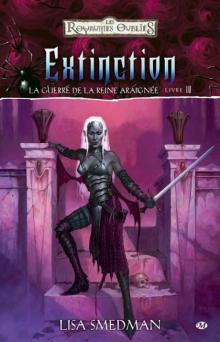 Extinction
Extinction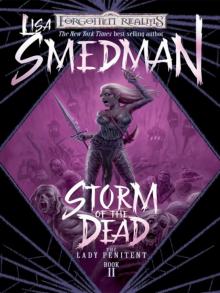 Storm of the Dead
Storm of the Dead Blood Sport
Blood Sport The Lucifer desk (s-2)
The Lucifer desk (s-2)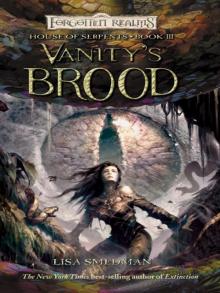 Vanity's Brood
Vanity's Brood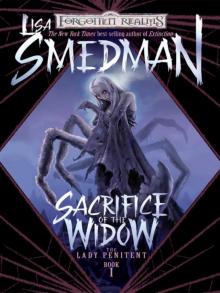 Sacrifice of the Widow
Sacrifice of the Widow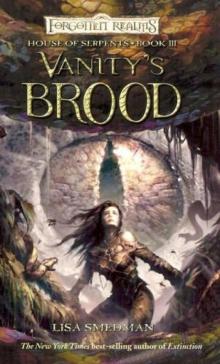 Vanity's brood hos-3
Vanity's brood hos-3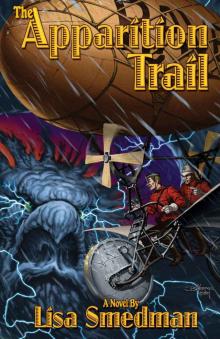 Apparition Trail, The
Apparition Trail, The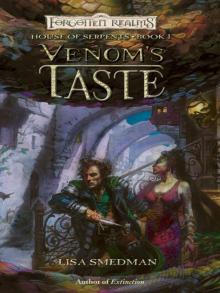 Venom's Taste
Venom's Taste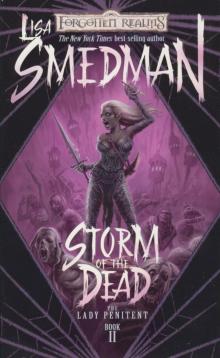 Forgotten Realms - The Lady Penitent - Storm of the Dead
Forgotten Realms - The Lady Penitent - Storm of the Dead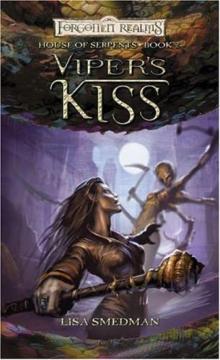 Viper's kiss hos-2
Viper's kiss hos-2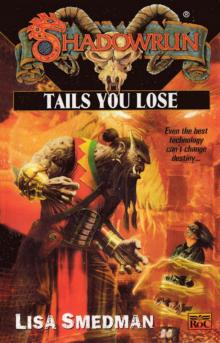 Tails You Lose
Tails You Lose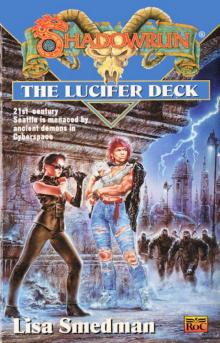 The Lucifer Deck
The Lucifer Deck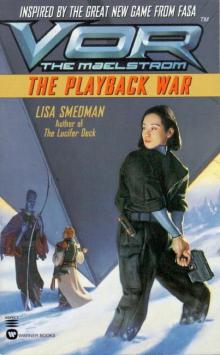 Vor: The Playback War
Vor: The Playback War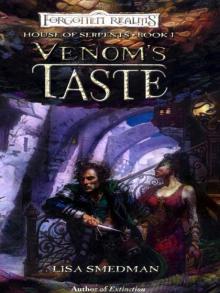 Forgotten Realms - House of Serpents 1 - Venom's Taste
Forgotten Realms - House of Serpents 1 - Venom's Taste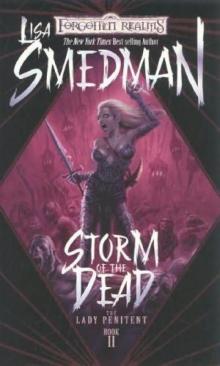 Storm of the Dead зкp-2
Storm of the Dead зкp-2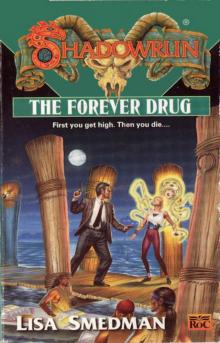 The Forever Drug
The Forever Drug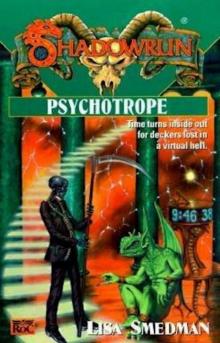 Psychotrope
Psychotrope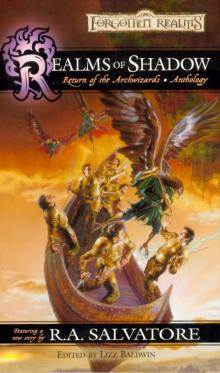 Realms of Shadow a-8
Realms of Shadow a-8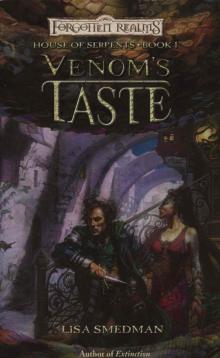 Venom’s Taste hos-1
Venom’s Taste hos-1 Psychotrope s-33
Psychotrope s-33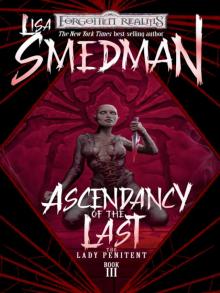 Ascendency of the Last
Ascendency of the Last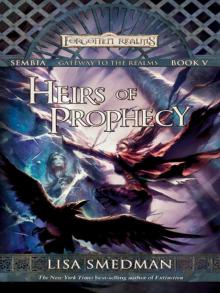 Heirs of Prophecy
Heirs of Prophecy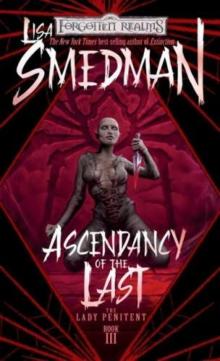 Ascendancy of the Last зкp-3
Ascendancy of the Last зкp-3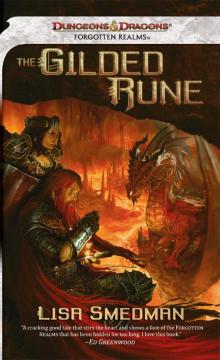 The Gilded Rune (forgotten realms)
The Gilded Rune (forgotten realms)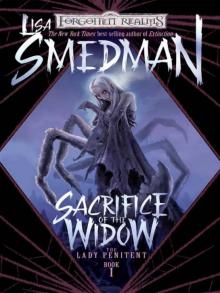 Sacrifice of the Widow: Lady Penitent, Book I
Sacrifice of the Widow: Lady Penitent, Book I The Lucifer desk s-23
The Lucifer desk s-23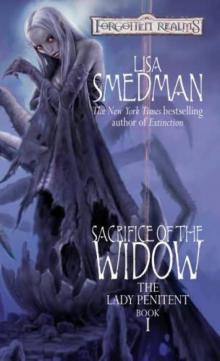 Sacrifice of the Widow lp-1
Sacrifice of the Widow lp-1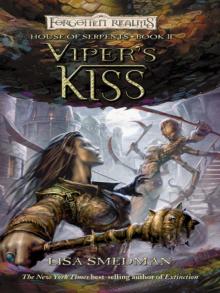 Viper's Kiss
Viper's Kiss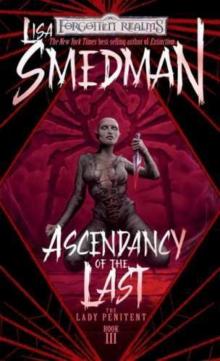 Forgotten Realms - The Lady Penitent - Ascendancy of the Last
Forgotten Realms - The Lady Penitent - Ascendancy of the Last